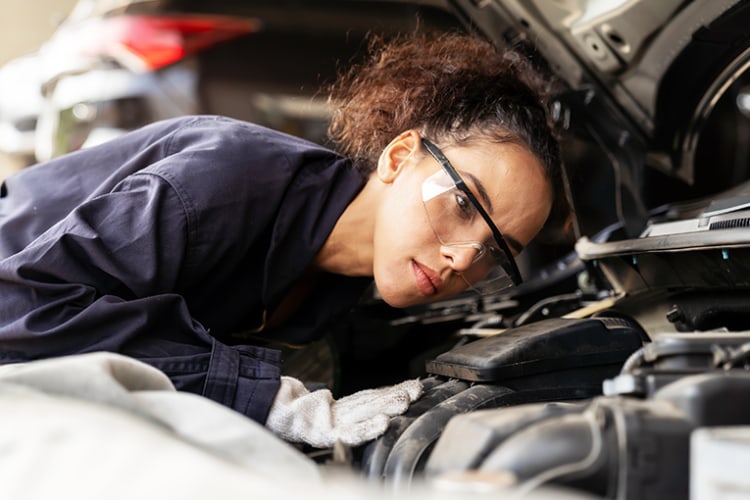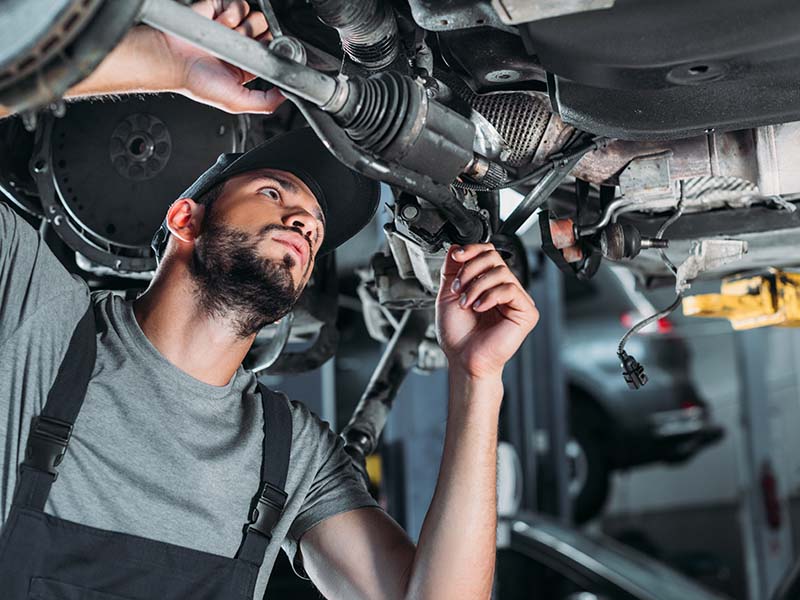All Categories
Featured
When it comes to keeping a car, recognizing the distinctions in between regular upkeep and repairs is vital for cars and truck owners. Both elements are needed for the longevity and dependability of your auto, but they offer distinctive objectives and are dealt with in different ways. By understanding when to do normal maintenance versus when to deal with fixings, you can maintain your vehicle running smoothly and avoid costly surprises.
![]()
Regular Upkeep: Avoidance is Key. Regular maintenance includes the regular, precautionary treatment that your car requires to prevent future issues. It is generally scheduled at particular intervals, such as every 3,000 or 5,000 miles, based upon your vehicle's guidebook or supplier recommendations. Regular maintenance assists make certain that your cars and truck continues to be in ideal problem, protecting against damage from causing major problems down the line.
Some common examples of routine maintenance consist of:
Oil Adjustments: Normal oil modifications are critical to keep your engine lubricated and running efficiently. Oil helps in reducing friction in between engine parts, protecting against overheating and unnecessary wear. Tire Maintenance: This includes tire turnings, harmonizing, and examining tire stress. Appropriate tire upkeep guarantees better gas efficiency, managing, and tire durability. Brake Inspections: Routine look at your brakes, including pads and liquid degrees, can catch any possible issues early, preventing brake failing and guaranteeing safety and security. Fluid Checks and Top-Ups: Guaranteeing your cars and truck has the ideal levels of coolant, transmission liquid, power steering fluid, and brake liquid is essential for overall automobile health. Air Filter Substitute: Replacing the air filter makes certain that your engine obtains tidy air, which aids it run extra effectively and decreases engine pressure. Routine upkeep is generally arranged and does not involve fixing any busted components-- it has to do with maintaining whatever in excellent working order and avoiding future breakdowns.
Services: Fixing the Unanticipated. Repair services, in contrast, are necessary when something goes incorrect with your vehicle. Repair services resolve problems that influence the auto's performance or safety and need to be repaired asap. Unlike maintenance, which is preventative, repairs normally occur when parts have broken, fell short, or malfunctioned.
Examples of common repairs include:
Transmission Issues: If your cars and truck is having problem shifting experiences or equipments sliding, the transmission may require fixings or substitute. Engine Failing: If your engine begins misfiring, overheating, or stalling, it might require substantial repairs or replacement of components like the timing belt, pistons, or seals. Brake Repair works: While brake pads become part of routine maintenance, if your brakes are making a grinding noise or are no more working properly, brake repair services will be required, such as changing the calipers or the blades. Battery Substitute: If your car won't start or the battery is no more holding a fee, you'll require a substitute battery, which is a fixing. Suspension and Guiding Repairs: Issues with the suspension or guiding system-- such as trouble guiding or a tough time-- can be indications that parts like struts or shock absorbers require repair work. Fixings are usually a lot more immediate and pricey than regular upkeep. They are called for when something breaks or malfunctions, which can impact the vehicle's capability and safety and security.
Secret Distinctions In Between Routine Maintenance and Repair Work. Timing: Routine maintenance is precautionary and done at arranged periods, while fixings are responsive and occur when something goes wrong. Expense: Upkeep is generally cheaper, as it entails checking and replacing smaller liquids or parts. Fixings, specifically significant ones, often tend to be extra expensive as a result of the intricacy of taking care of busted or defective elements. Objective: The goal of maintenance is to keep your cars and truck running well and stop problems. Fixings, on the other hand, are needed to deal with issues that have already taken place. Regularity: Regular maintenance occurs continually at established periods (e.g., every 5,000 miles), while repair work are much less foreseeable, frequently occurring when components put on or fail out unexpectedly. Why Both are very important. Both routine maintenance and fixings are vital for the long-lasting health of your vehicle. Regular maintenance aids maintain your cars and truck running efficiently and can stop many typical problems from creating to begin with. By remaining on top of arranged services, you can deal with tiny troubles before they turn into costly fixings.
![]()
Nevertheless, repair work are in some cases unavoidable. Despite the most effective upkeep, parts break in time, and unforeseen issues can emerge. When repair work are required, resolving them without delay can protect against additional damages and guarantee your vehicle's safety and security and reliability.
Final thought. In recap, recognizing the difference between regular repair and maintenance assists you take the ideal actions to look after your car. Normal maintenance can conserve you money by protecting against larger problems, while repairs are needed when something goes incorrect. By remaining aggressive with upkeep and addressing repairs when required, you can expand the life-span of your lorry and ensure that it remains to execute at its finest for many years to come.

Regular Upkeep: Avoidance is Key. Regular maintenance includes the regular, precautionary treatment that your car requires to prevent future issues. It is generally scheduled at particular intervals, such as every 3,000 or 5,000 miles, based upon your vehicle's guidebook or supplier recommendations. Regular maintenance assists make certain that your cars and truck continues to be in ideal problem, protecting against damage from causing major problems down the line.
Some common examples of routine maintenance consist of:
Oil Adjustments: Normal oil modifications are critical to keep your engine lubricated and running efficiently. Oil helps in reducing friction in between engine parts, protecting against overheating and unnecessary wear. Tire Maintenance: This includes tire turnings, harmonizing, and examining tire stress. Appropriate tire upkeep guarantees better gas efficiency, managing, and tire durability. Brake Inspections: Routine look at your brakes, including pads and liquid degrees, can catch any possible issues early, preventing brake failing and guaranteeing safety and security. Fluid Checks and Top-Ups: Guaranteeing your cars and truck has the ideal levels of coolant, transmission liquid, power steering fluid, and brake liquid is essential for overall automobile health. Air Filter Substitute: Replacing the air filter makes certain that your engine obtains tidy air, which aids it run extra effectively and decreases engine pressure. Routine upkeep is generally arranged and does not involve fixing any busted components-- it has to do with maintaining whatever in excellent working order and avoiding future breakdowns.
Services: Fixing the Unanticipated. Repair services, in contrast, are necessary when something goes incorrect with your vehicle. Repair services resolve problems that influence the auto's performance or safety and need to be repaired asap. Unlike maintenance, which is preventative, repairs normally occur when parts have broken, fell short, or malfunctioned.
Examples of common repairs include:
Transmission Issues: If your cars and truck is having problem shifting experiences or equipments sliding, the transmission may require fixings or substitute. Engine Failing: If your engine begins misfiring, overheating, or stalling, it might require substantial repairs or replacement of components like the timing belt, pistons, or seals. Brake Repair works: While brake pads become part of routine maintenance, if your brakes are making a grinding noise or are no more working properly, brake repair services will be required, such as changing the calipers or the blades. Battery Substitute: If your car won't start or the battery is no more holding a fee, you'll require a substitute battery, which is a fixing. Suspension and Guiding Repairs: Issues with the suspension or guiding system-- such as trouble guiding or a tough time-- can be indications that parts like struts or shock absorbers require repair work. Fixings are usually a lot more immediate and pricey than regular upkeep. They are called for when something breaks or malfunctions, which can impact the vehicle's capability and safety and security.
Secret Distinctions In Between Routine Maintenance and Repair Work. Timing: Routine maintenance is precautionary and done at arranged periods, while fixings are responsive and occur when something goes wrong. Expense: Upkeep is generally cheaper, as it entails checking and replacing smaller liquids or parts. Fixings, specifically significant ones, often tend to be extra expensive as a result of the intricacy of taking care of busted or defective elements. Objective: The goal of maintenance is to keep your cars and truck running well and stop problems. Fixings, on the other hand, are needed to deal with issues that have already taken place. Regularity: Regular maintenance occurs continually at established periods (e.g., every 5,000 miles), while repair work are much less foreseeable, frequently occurring when components put on or fail out unexpectedly. Why Both are very important. Both routine maintenance and fixings are vital for the long-lasting health of your vehicle. Regular maintenance aids maintain your cars and truck running efficiently and can stop many typical problems from creating to begin with. By remaining on top of arranged services, you can deal with tiny troubles before they turn into costly fixings.

Nevertheless, repair work are in some cases unavoidable. Despite the most effective upkeep, parts break in time, and unforeseen issues can emerge. When repair work are required, resolving them without delay can protect against additional damages and guarantee your vehicle's safety and security and reliability.
Final thought. In recap, recognizing the difference between regular repair and maintenance assists you take the ideal actions to look after your car. Normal maintenance can conserve you money by protecting against larger problems, while repairs are needed when something goes incorrect. By remaining aggressive with upkeep and addressing repairs when required, you can expand the life-span of your lorry and ensure that it remains to execute at its finest for many years to come.
Latest Posts
Quick Car Repair Solutions - Fix Your Car with Montclare Auto Repair Hassle-Free
Published Apr 20, 25
2 min read
Reliable Auto Care for Any Car Brand: Your Complete Auto Solution in Montclare
Published Apr 20, 25
2 min read
Emergency Situation Roofing Repair-- Quiting Leakages in Their Tracks
Published Apr 20, 25
1 min read
More
Latest Posts
Quick Car Repair Solutions - Fix Your Car with Montclare Auto Repair Hassle-Free
Published Apr 20, 25
2 min read
Reliable Auto Care for Any Car Brand: Your Complete Auto Solution in Montclare
Published Apr 20, 25
2 min read
Emergency Situation Roofing Repair-- Quiting Leakages in Their Tracks
Published Apr 20, 25
1 min read